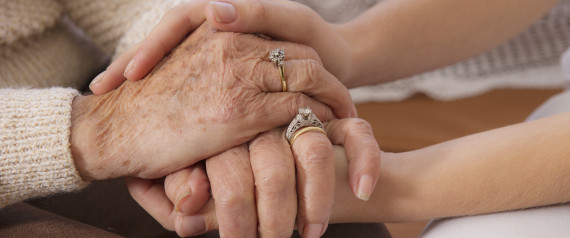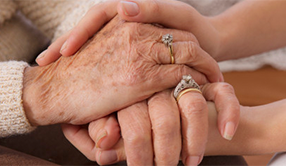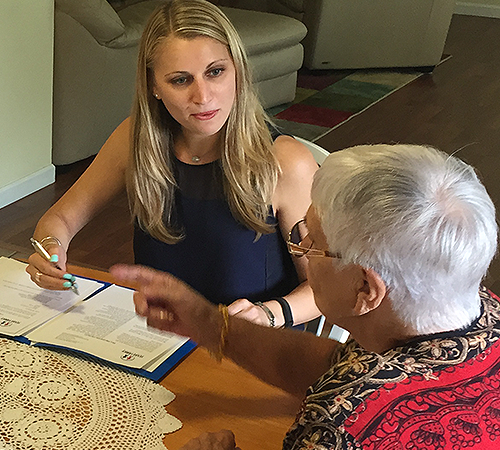Tips for Alzheimer’s Caregivers: Preventing Burnout
July 27, 2015 – by Eric J. Hall • huffingtonpost.com

Blend Images – Dave and Les Jacobs via Getty Images
Summer is notoriously one of the busiest times of the year. During the summer it seems as though we all have more trips, more weddings, more responsibilities and less time to get everything done. It can be easy to get overwhelmed during the summer and feel burned out with all of the extra activities. This is even more of an issue for Alzheimer’s caregivers who have a huge load of extra responsibility piled on their everyday tasks.
Many Alzheimer’s caregivers become so invested in the demanding job of taking care of an individual with dementia that they find themselves at risk of burning out. Caring for someone with this disease can be stressful and overwhelming and this can lead to burnout, and in many cases serious issues such as depression.
Here are some of the most common signs that you may be experiencing, or close to experiencing, burnout.
- Overwhelming feelings of frustration with the person you are caring for
- A new found lack of patience with the individual you are caring for
- Fatigue
- Feeling overwhelmed or overly emotionally
- Having trouble concentrating
- Feeling resentful towards others
- Developing new or worsening health issues
- Possessing a feeling that life will never get easier or better
- Experiencing changes in sleep or appetite
- Feeling a need to abuse medication or alcohol
- Believing that life is never going to get easier or better
These are all indications that you may be burning out. This can be a confusing time for any caregiver. On one hand you love the person you are caring for, but on the other, you are overwhelmed with these feelings in a way that can make you feel negative towards your loved one.
The first thing you need to do is to go easy on yourself. Just because you get frustrated, it doesn’t mean that you are a bad caregiver or that you don’t care. It is completely normal to get frustrated with the person you are caring for, and this is OK. Do not try to be the perfect caregiver, just do what you can and take everything one day at a time.
One of the best ways that you can help prevent burnout is to surround yourself with people. Having a strong network of family and friends can help you get the support that you need. You can also reach out to your doctor for ongoing support as you deal with the struggles and frustrations with being a caregiver. The more proactive you are and the more you attempt to surround yourself with those who can help you, the better off you will be.
Many times caregivers feel as though they must neglect their own needs, simply because they are so busy or feel as though they must only focus on the needs of the individual they are caring for. This is a very common sign of burnout, and something that can cause extreme stress. If you do not care for yourself, then you cannot be the best caregiver possible, so make certain you are always taking time to care for your own needs.
When someone offers you help with your caregiver responsibilities, make sure that you say “yes.” It is OK to accept help from time to time, you don’t always have to be the only one caring for your loved one and you don’t always have to control everything. If you take the time to give small tasks to others then you will start feeling less stress and can prevent burnout. If you take it upon yourself to start proactively preventing stress, then you can prevent issues with burnout from taking over so you can be the best caregiver possible for your loved one.
Read the article here:
http://www.huffingtonpost.com/eric-j-hall/tips-for-alzheimers-caregivers-preventing-burnout_b_7867292.html




Follow Us!